Madrid has become the latest city to confront overtourism, as the Spanish metropolis moves to drastically curb the Airbnb and homeshare listings available in the destination.
Secretary for sustainable urban planning José Manuel Calvo announced the proposed regulations last week, aiming to tackle the issue of mass tourism head on.
The new regulations are in response to locals fearful of being priced out of their own neighborhoods.
Officials in other destinations in Spain including Valencia and Mallorca – as well as in Venice, Italy – have also introduced drastic measures to control overtourism and encourage responsible vacationing.
New rules
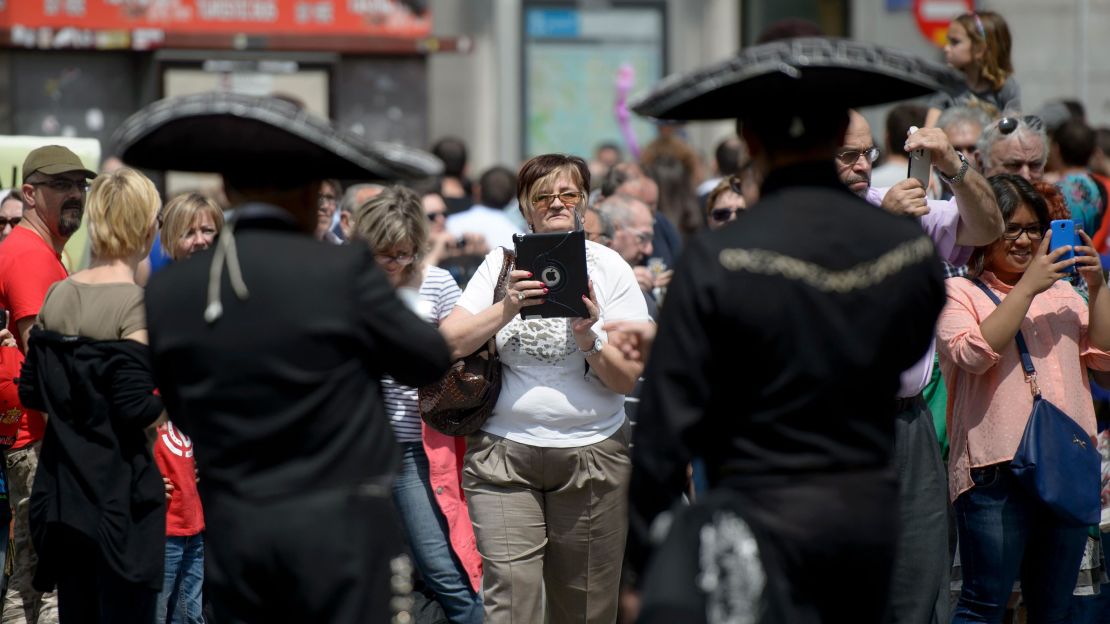
Proposed rules in Madrid will prevent apartments from being rented out to tourists for more than 90 days of the year – and entire apartment blocks will no longer be able to be solely visitor accommodation, unless the building is licensed as a hotel.
Different restrictions will apply depending on which area of the city the apartments are in. Unsurprisingly, the more central you are, the more rules will be in place.

Airbnbs in the Central zone will need a designated entrance to the street, independent of the entrance used by permanent residents of the building.
This would eradicate the majority of apartments currently used as vacation rentals in the city and mark a drastic change for the city.
The city reports that 23 times more tourists sleep in the Central district of Madrid than in all the other 20 districts of Madrid put together.
Spain's most beautiful places
Room without a view
Meanwhile, in Valencia, on Spain’s southeastern coast, officials have proposed new restrictions limiting private holiday rentals above first floor level.
The result? No more rooms with a view. Instead of sweeping panoramas of the Mediterranean, you’re more likely to have a view of parked cars.
In the Ciutat Vella, Valencia’s historic old town, no new rentals will be allowed.
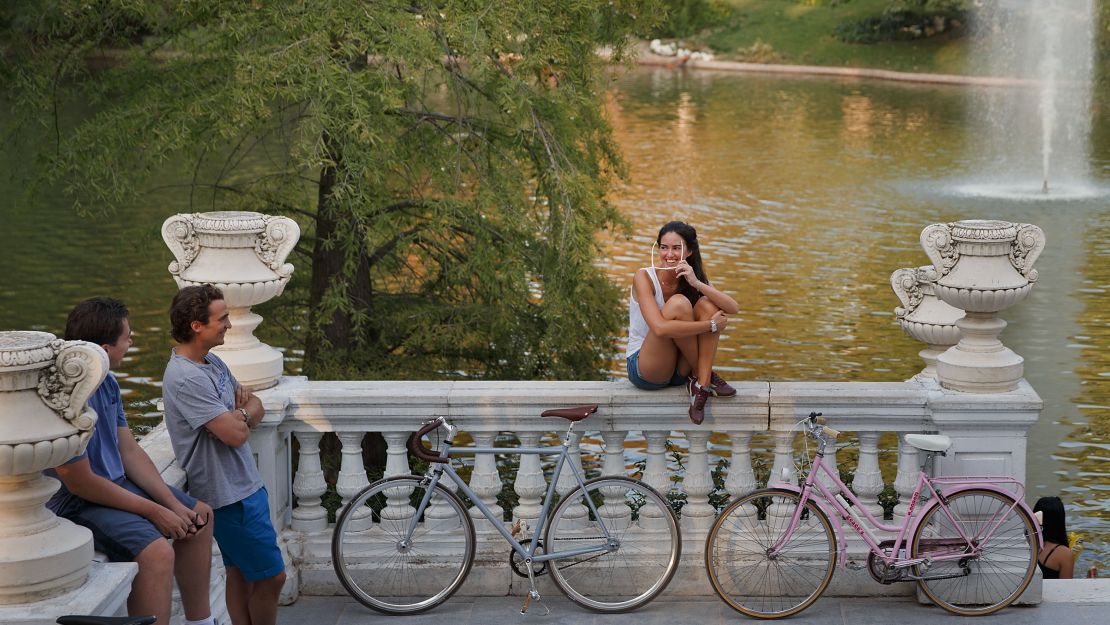
Earlier this year, the capital of Mallorca, Palma, issued a concrete ban on apartments serving as private vacation rentals.
“Home-sharing on Airbnb is helping local families afford their homes and rising living costs, while boosting the local economy,” Airbnb tells CNN Travel in a statement.
“It is part of the solution to local housing concerns in cities, and is helping put tourism euros in the pockets of local families – not just wealthy hotel groups. “
Airbnb remains adamant that “Airbnb has no significant impact on housing in Madrid.”
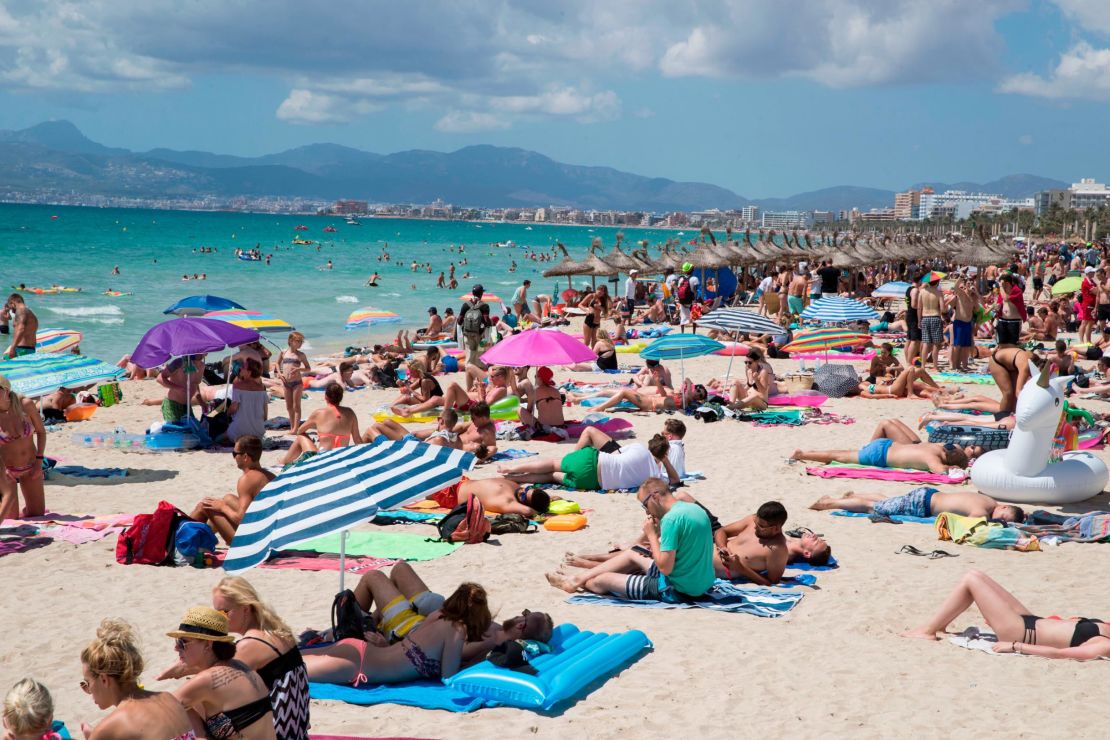
In a recent report, Airbnb concluded that “entire home listings booked more than 90 nights in 2017 represented just 0.3% of the total housing stock in Madrid.”
The company said they intended to continue having “positive conversations” with Madrid and Valencia on the future of Airbnb in these destinations.
It points to recent changes in Berlin, which overturned previously stringent rules to permit short-term apartment rentals.
Ongoing problem
Can Venice save itself from its own popularity?
The issue of overtourism extends beyond Airbnb.
In Mallorca, campaigners have also called for a fee to be paid by cruise passengers and a limit to two liners a day docking in the city.
Meanwhile, Venice – which has long been the unwilling poster child for overtourism – came up with a new plan to handle the huge crowds over May Day weekend: segregating locals and tourists.
Temporary regulations were introduced to manage pedestrian and water traffic, redirecting the crowds from locals.
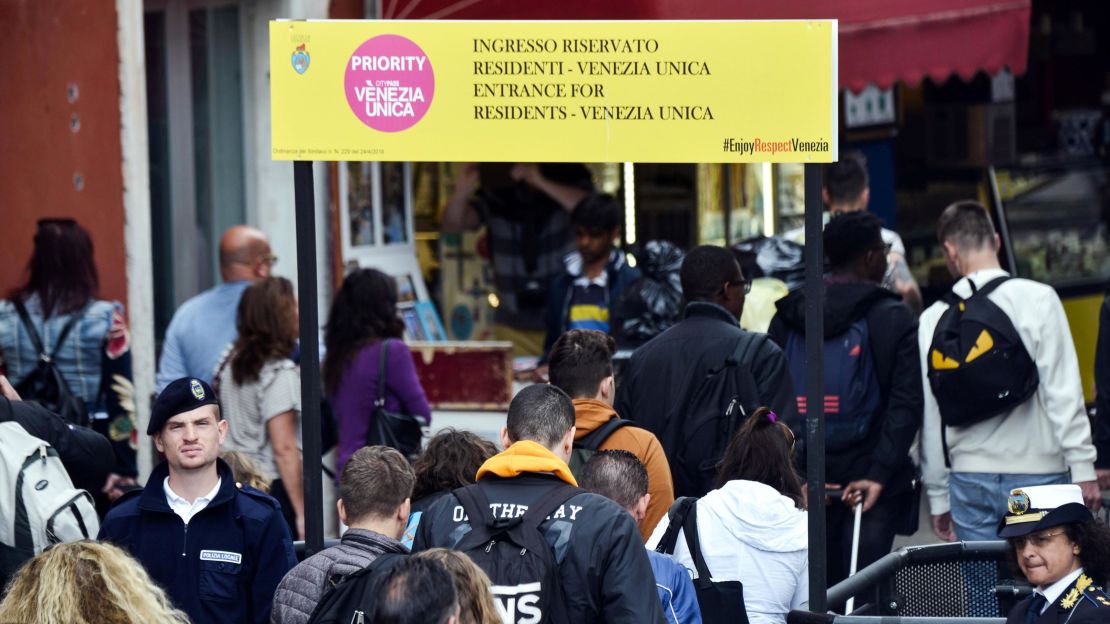
Traveler Faye Richards visited Venice over this holiday weekend.
“In the center [the crowding] was really bad,” she tells CNN Travel. “Especially on super-narrow streets you had to walk so slow behind everyone.”
Richards and her party joined long lines for St Mark’s Campanile and the Basilica on St Mark’s Square. Waiting for a boat to travel from the Venetian island of Murano to Burano, their line extended from the boat station back into a square, dominating the local landscape.
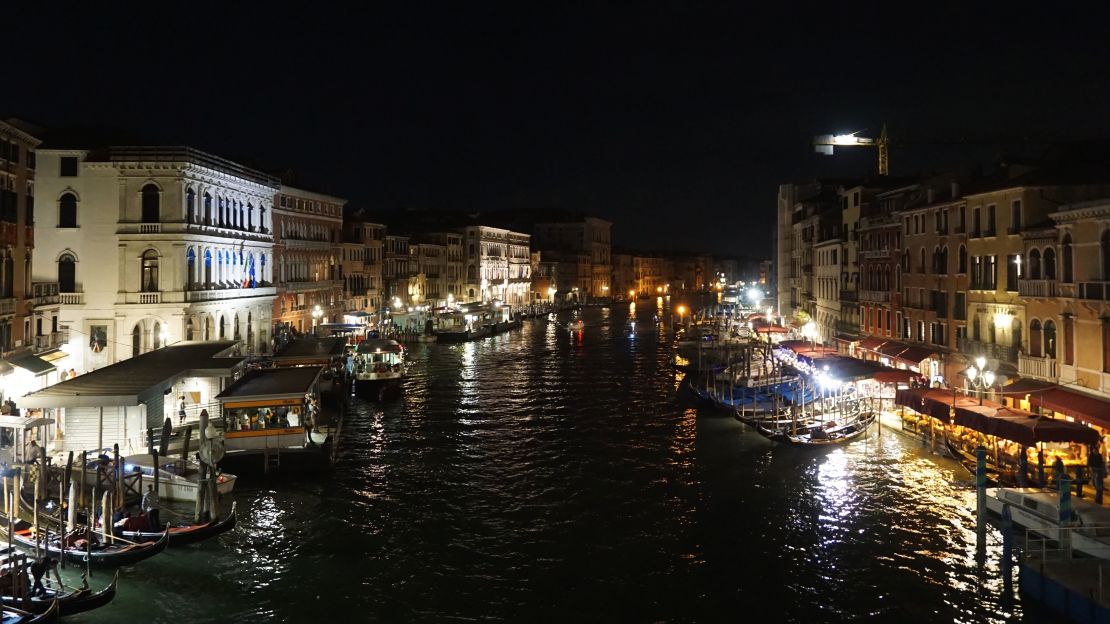
“But if you were further away from the center there were lots of quiet areas and it was super nice. Also the crowds didn’t last very long into the night, so nighttime was great to explore.”
Richards says she didn’t feel she was redirected away from locals – but that wasn’t necessarily a good thing.
“My general impression of Venice is that there literally seemed to be no locals,” she says. “They all live outside I’m pretty sure. Everything is for tourism.”
Alternative solutions

Advocates say the best way to solve the mass tourism issue is to listen to local people, vacationers and officials – to encourage open dialogue.
“It’s good to see destinations finally listening to residents and taking more control over how the tourism industry develops, working to avoid overtourism,” Justin Francis, CEO and founder of Responsible Travel – a self-described activist travel company – tells CNN Travel.
“Airbnb has been somewhat of a poisoned chalice for many tourism destinations around the world,” he says.
“At first, it seemed a hopeful tool for empowering local people – opening up the accommodation market, creating pockets of opportunity in communities and spreading the benefits far wider than just large hotel corporations.
“It built itself as a disruptive business but I don’t think we ever imagined it would be as disruptive for local people as it has turned out to be.”
Francis praises the decision to listen to residents in Valencia and Madrid – and advocates for a new approach, grounded in communication.
“If there’s to be a responsible future for tourism in these cities then we have to put an end to the mentality of ‘growth at all costs’ and start measuring the success of tourism through the use of other indicators that are based much more firmly around the benefits to local communities.”















































